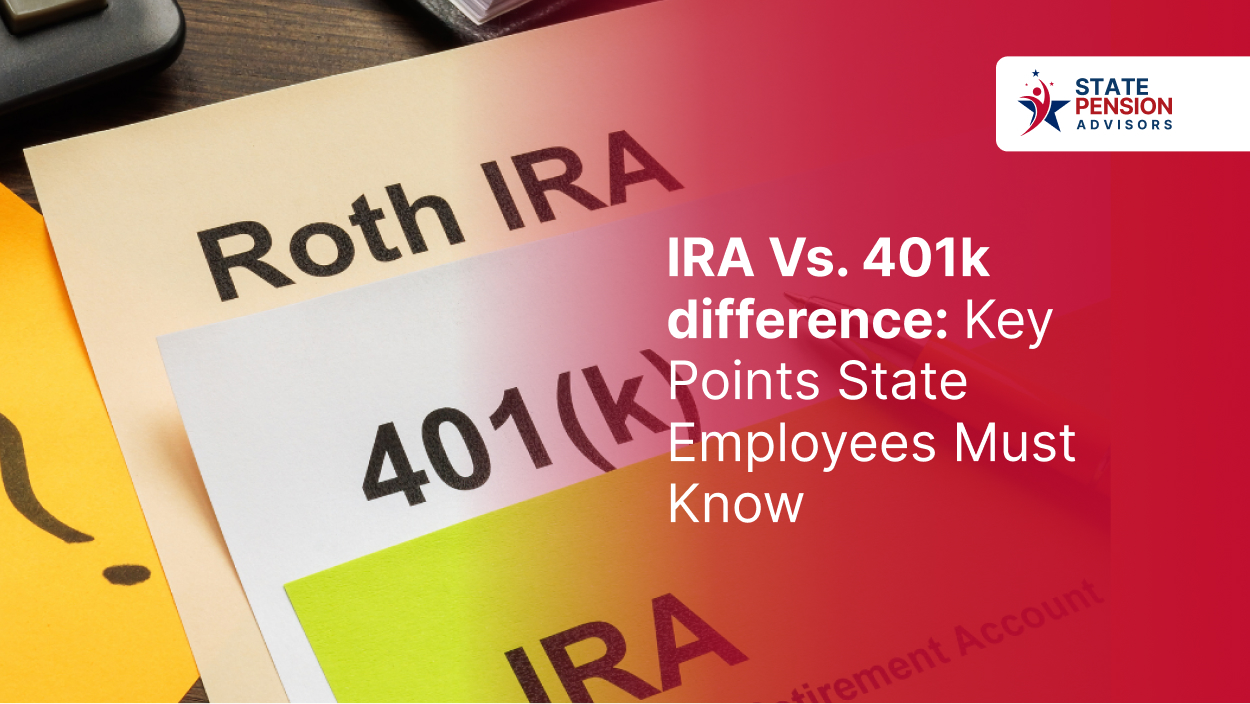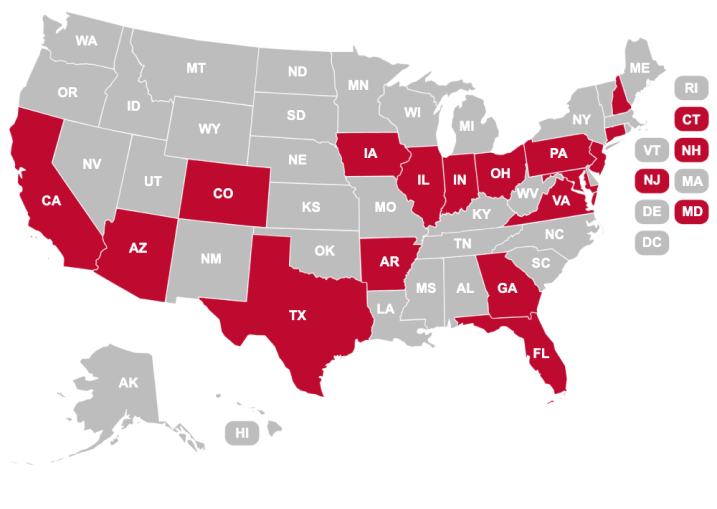SEP IRA vs SIMPLE IRA – A Detailed Comparison

h2,h3
SEP IRA vs SIMPLE IRA are two different types of ways in which business owners or employers can help themselves and their employees save up for retirement. In fact, you can say that both of these plans can be used as a roadmap to achieve a financially secure future. What’s the difference between these two plans? How are they beneficial for you? Don’t know much about these plans? Let’s find out! Here is all you need to know about simple IRA vs SEP IRA. With this guide by your side, you are all set to make the right choice for your future.
- Both SEP and SIMPLE IRAs are employer-sponsored plans that help employees build a retirement income through tax-free contributions.
- SEP IRAs offer flexible contribution amounts based on business performance while SIMPLE IRAs require employer matching or a fixed non-elective contribution.
- Both SEP and SIMPLE IRAs provide immediate vesting of contributions. You have the right to the funds once they’re deposited in the account.
- Both SEP and SIMPLE IRAs are suitable for sole proprietors. They allow them to contribute to their own retirement savings.
SEP IRA vs SIMPLE IRA – Let’s Compare Both
Both SEP IRA vs simple IRA are employer-sponsored plans designed to help employees save funds for their retirements. Moreover, they have to make regular contributions that are tax-deferred until the withdrawal. Besides, these plans are similar in some ways and differ in some. Besides, they are better than the typical retirement plans like a 401k, because they are more hassle-free.
We’re going to discuss this in detail so you know what’s better for you based on your needs. To break down SEP IRA vs simple IRA, we’ll discuss each one comprehensively.
What is a SEP IRA?
SEP or the Simplified Employee Pension is designed to help both employers and employees to set up retirement funds. Besides, this is not for the employees’ benefit. In fact, employers who are self-employed can use SEP IRA to save for retirement too. Also, the most important thing you should know is that employees can’t make contributions to their SEPs; only their employers can. Yes, that’s right! You cannot contribute to your own plan if you are an employer.
“An SEP allows employers and self-employed to save money and create a consistent retirement income for themselves and their employees.” – Internal Revenue Service
Also, you should know that a SEP IRA lets employers change contribution amounts based on the company's cash flow. Therefore, it is the perfect choice for businesses with varying income seasons. Although the amount can change, each employee receives the same percentage of contribution.
Who is eligible for SEP IRA?
As aforementioned, SEP IRA is for businesses. They use it to create a consistent retirement income for themselves and their employees. However, do you know what kind of businesses can sign up for this plan? Well, it's quite a flexible plan that allows all sorts of businesses to benefit from it, including:
- Businesses of all sizes
- Self-employed individuals
- Tax-exempt organizations
- Government entities
Self-employed also means that those with a freelance income can also sign up for this plan. Furthermore, all contributions are tax-deductible, whether for your business or your freelance income.
Contribution Limits for SEP IRA
You already know that employers are the ones who contribute to these plans – both for the employees and for themselves. Moreover, just like other retirement plans, there is a certain criterion you have to follow. In other words, you have to abide by the contribution limits the Internal Revenue Service has set for SEP IRAs. Besides, these conditions were set to make sure that the contributions were beneficial for both employers and employees. Let’s discuss the contribution limits:
- The minimum age of contributors should be 21 or more
- The contributor must have at least three years of employment
- As of 2024, the contribution limit of SEP is $69000 or 25% of the employee's salary
Keep in mind that all the contributions made by employers are tax-deferred. This means that you can accumulate retirement savings tax-free. Also, AEP IRAs are taxed like traditional IRAs and offer the same investment options. The transfer and rollover rules are also the same as for traditional IRAs.
Besides, if you need any more help to understand the contribution of a SEP IRA, it is better to seek help from pension plan consultants. After all, they know how these retirement plans work. And you can rely on them you give you the best solution based on your needs and goals. Additionally, having know-how of the contribution limits can give you an even clearer idea of SEP IRA vs SIMPLE IRA.
What are the Benefits of SEP IRA?
The highlight of SEP IRAs is the benefits they offer. After all, these are what makes this plan better than other employer-sponsored tax-deferred plans like 401k or 403b. Anyhow, here are some of the benefits this retirement plan offers:
➢ Easy to Maintain
Setting up and maintaining a SEP IRA is easier than a lot of other similar options. Therefore, they are attractive options for small business owners and self-employed individuals. The best part is that there is no long list of regulations to follow. After all, the regulations of IRS for this plan as not as extensive as for typical plans.
➢ Tax-Deferred Growth
As aforementioned, this plan allows tax-deferred growth. This means you can save up for your golden years of life without worrying about tax deductions. However, taxes don’t vanish forever. In fact, you have to pay taxes on every withdrawal you make. But because the contributions are tax-free, you can save so much more than without a plan.
➢ Flexible Contributions
Employers can adjust their contributions based on the company’s financial performance each year. In prosperous years, they can contribute more, while in lean years, they can manage the contributions accordingly. This helps employers and businesses act in a responsible manner regarding the cash flow of their business.
➢ Immediate Vesting
Here comes the main benefit of SEP IRA: it allows for immediate vesting. This means that SEP allows for immediate vesting of your tax-deductible contributions. In other words, the employee fully owns the funds as soon as they are contributed. This provides a significant benefit as there are no waiting periods or vesting schedules. So, this was all the important information about SEPs. Now let’s move to the next part of our sep vs simple comparison: SIMPLE IRA.
What is a SIMPLE IRA?
SIMPLE IRA or Savings Incentive Match Plan for Employees helps small businesses to set up retirement accounts for themselves and their employees. It is a tax-benefitted plan that allows you to create savings for retirement without worrying about tax payments. Moreover, this plan is quite similar to a traditional IRA in contributions. However, with SIMPLE, the contribution limit is higher.
“SIMPLE IRA allows both employers and employees to contribute to a traditional IRA and save up for retirement.” – Internal Revenue Service
For this plan, employees make the decision of the amount they want to add to their SIMPLE IRA account and their employers have to match these contributions. Furthermore, Employee contributions are deducted from their paycheck before federal taxes are applied.
Who is Eligible for a SIMPLE IRA?
Undoubtedly, SIMPLE IRA is a very beneficial retirement saving tool for small businesses. After all, it lets them not just save for themselves but for their employees too. Plus, it’s not like an SEP, this means both employers and employees contribute to a SIMPLE plan. Moreover, this plan mainly focuses on employer matching. Here are the businesses eligible for this plan:
- The plan is available to employers with 100 or fewer workers
- This includes small businesses, self-employed people, tax-exempt organizations, and government entities.
Those who fall into this category can freely benefit from this plan. After all, it is specially designed to facilitate small businesses. Moreover, to participate in a SIMPLE IRA, the employee must have $5000 in salary in any two of its previous working years.
Contribution Limits for SIMPLE IRA
This plan allows employees to contribute to their accounts and employers can match their contributions. However, the amount they match is not equal to that of employees' contribution. Yes, that’s right! This means that employee contributions play the main character here. But if the employer contributes, he can either:
- Match up to 3% of the employee’s annual contribution
- Establish a non-elective 2% contribution of employee’s salary without the need for employee’s contributions
Is there a contribution limit for employees? Of course it is! Just like other retirement plans, this one also follow certain limitations set by the IRS, including:
- The contribution limit for employees in 2024 is $16000
- Employers of age 50 and older can make an extra contribution of $3500
With this knowledge, you can now make the right decision of choosing from sep ira vs simple ira. It is because you now know the contribution limits for both. Still can’t make a decision. Well, you should seek guidance from expert retirement plan consultants. They will assess your situation, needs and goals to provide a well rounded piece of advice.
What are the Benefits of a SIMPLE IRA?
Knowing the benefits of each plan, including the SIMPLE one will help you make the right decision per your needs. Therefore, we are discussing them here. Anyhow, the benefits of this plan include:
➢ Employer Contributions
One significant benefit of a SIMPLE IRA is employer contribution matching. As mentioned above, there are specific rules according to which employers can match contributions. This requirement ensures that employees can accumulate maximum savings for a financial sound retirement.
➢ Immediate Vesting
Just like SEP IRA, this plan also allows 100% vesting of both the employee's and employer contributions. Simply put, employees fully own these funds as soon as they are deposited. Most importantly, this saves the participants from endless waiting periods or vesting schedules. Also, this feature enhances the attractiveness of the plan.
➢ Potential Tax Credits
This is also a major benefit of this plan. When participating in a SIMPLE IRA, both employers and employees can enjoy potential tax benefits on an annual basis. Moreover, as employees make contributions to the plan, their taxable income decreases. As a result, they have to pay less taxes.
➢ Easy to Maintain
A SIMPLE IRA is quite simple to set up and maintain. After all, it doesn’t bind you to follow an extensive list of regulations like the typical plans. To make everything simpler, you can seek guidance from a professional advisor. They know how to navigate the nuances of different retirement plans with ease.
With the benefits clear in your mind you have a clear idea of how both sep ira vs simple ira work and how they can benefit you. With the above guide, you are all set to make the right choice for yourself.
Quick Question: SEP vs SIMPLE IRA for a sole proprietor. Which is Right?
You should know that both SEP IRA vs SIMPLE IRA are suitable for sole proprietors. Both these plans are devised to help employers and sole proprietors along with the employees. Moreover, in a sole proprietorship, the owner pays themselves wages and can make a SEP or SIMPLE contribution. Moreover, individuals running their businesses single-handedly can use this plan as an effective tool to save for the later years of their lives.
What are the Similarities Between SEP IRA vs SIMPLE IRA?
Both SEP IRA vs SIMPLE IRA are similar in a lot of ways. Undoubtedly, they are different plans with different pros and cons. Even their eligibility criteria are different. However, they have several similar aspects too. Let’s discuss some of them:
- You cannot set up any of these plans as a Roth IRA
- Both SEP and SIMPLE IRAs involve pre-tax contributions
- Tax deduction takes place on the withdrawals from both types of accounts
- You have to pay tax penalties on withdrawals before 59 ½
- Employer contributions for both plans quality tax deductions
Hence, these are the ways in which both plans resemble each other. Anyhow, to make the right choice between these two, we have to discuss the differences too.
SEP IRA vs SIMPLE IRA – What’s the Difference?
Both the plans – SEP and SIMPLE – are discussed in detail. However, what is the difference between sep and SIMPLE IRA? Well, to give you a better understanding of how both plans differ from each other, here is a detailed yet skimmable comparison for you:
With this comparison by your side, you can make a well-informed decision about your retirement planning. Remember to choose wisely. After all, yours and your employees’ retirement life depends on it. Besides, you can consider other options too including 401k or 457b or 403b. However, you should choose one of SEP IRA vs SIMPLE IRA if you want more flexible regulations.
SEP IRA vs SIMPLE IRA – Which Is Better?
Whether you choose SEP or SIMPLE IRA, the decision is yours. You have all the similarities, and differences, benefits, and limitations listed above. You can go through them and see what’s better for you. Furthermore, make a choice based on your goals and needs. The main thing is you must have a plan. Without it, your employees' financial future is always at risk. After all, these plans are tools to save up money for retirement. With these plans, you can promise your employees a sound and secure financial life after retirement. And they deserve it! So, don’t waste time; get a SEP IRA or a SIMPLE IRA so your employees can avail of the benefits.










.png)
.png)










